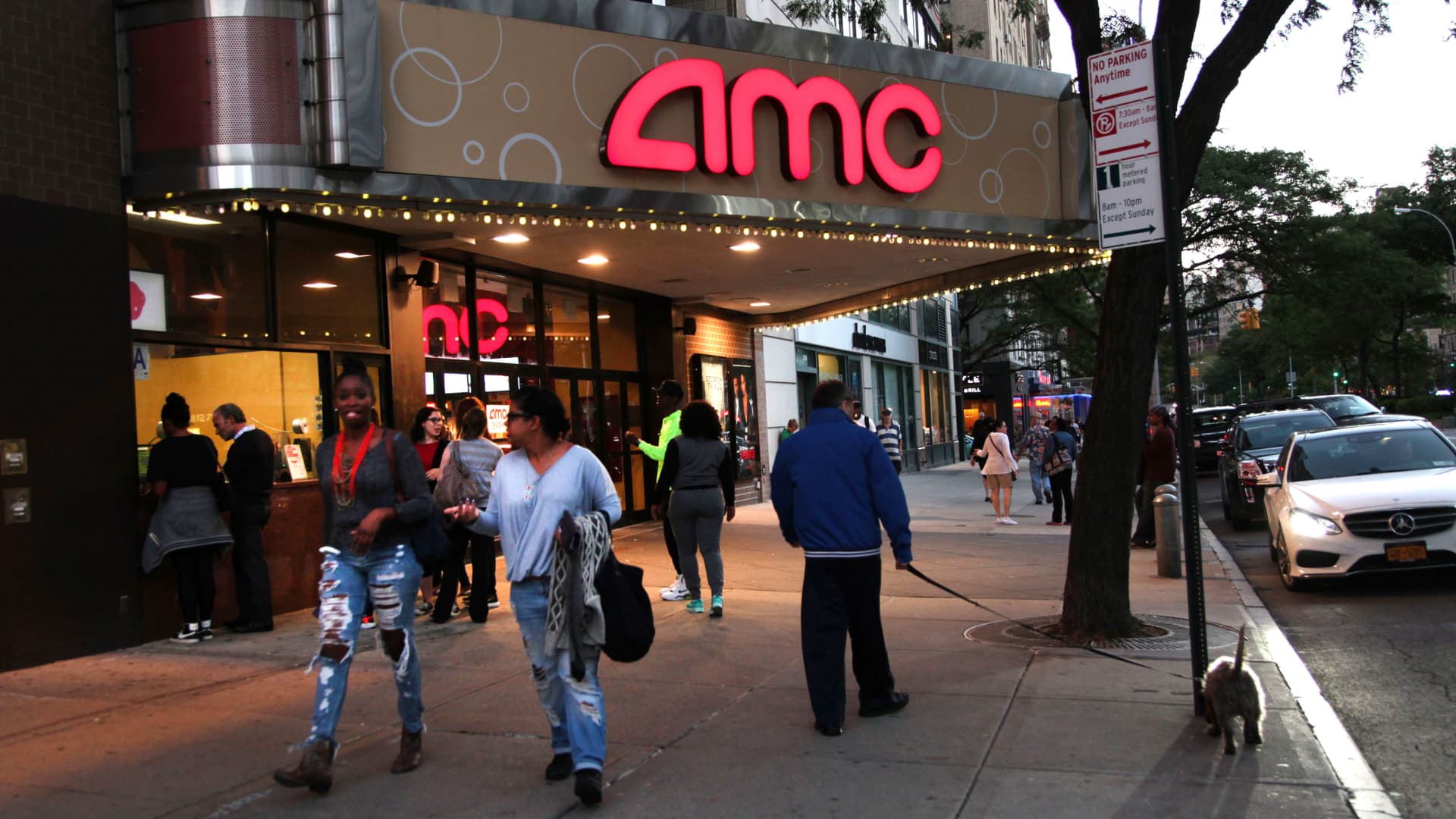AMC plunges after theater company announces capital raise, proposes reverse stock split
AMC Entertainment announced a capital raise to help pay down debt, and proposed a reverse stock split.

AMC Movie theatre
Scott Mlyn | CNBC
AMC Entertainment's stock fell swiftly on Thursday after the company announced a new $110 million capital raise and a proposed reverse stock split that will require shareholder approval.
The shares were halted briefly after the opening bell as AMC hit a new 52-week low.
The company said it plans to raise the new equity through a sale of its APE units – a form of preferred shares referring to the "Apes" moniker adopted by meme stock investors – to Antara Capital LP at a weighted average price of $0.66 a share. On Wednesday, the APE closing price was $0.685. This reduces its debt load by $100 million, the company said.
"Clearly, the existence of APEs has been achieving exactly their intended purposes. They have let AMC raise much welcomed cash, reduce debt and in so doing deleverage our balance sheet and allow us to explore possible [mergers and acquisition] activity," CEO Adam Aron said in a news release Thursday.
In addition, AMC is proposing a reverse-stock split of AMC common shares at a 1-to-10 ratio. The company is requesting a special shareholder meeting to approve the reverse-stock split, and convert APE units into AMC common shares.
The world's largest movie theater chain has been working to lighten its hefty debt load, which piled on during the early days of the pandemic when theaters were closed, and also dealing with stock dilution and a film release schedule short on blockbusters.
In November, the company reported another quarterly loss despite notching higher revenue compared to earlier year due to higher operational costs. Despite having a significant amount of cash on its balance sheet, AMC has been spending more than it makes each quarter on operations line concession and film exhibition costs, as well as rent.
During the third quarter AMC said it burned through $179 million in cash.
Still, the company has said it's focused on theater investments, such as upgrading movie screens and increasing the number of special effects screens like IMAX and Dolby Cinema, across its footprint.
The capital raise and proposed reverse-stock split comes a day after AMC said it was no longer in talks to buy theaters from Regal parent company Cineworld, which filed for bankruptcy earlier this year. In a securities filing, AMC said discussions with Cineworld lenders regarding assets in the U.S. and Europe had ended.
AMC itself had been on the brink of bankruptcy in 2021, but was able to avert it after millions of retail investors who turned its shares into a meme stock. AMC has since devised several plans to raise more capital to reduce its debt and invest in acquisitions and its theaters.
Read the full release from the company here.

 AbJimroe
AbJimroe 































